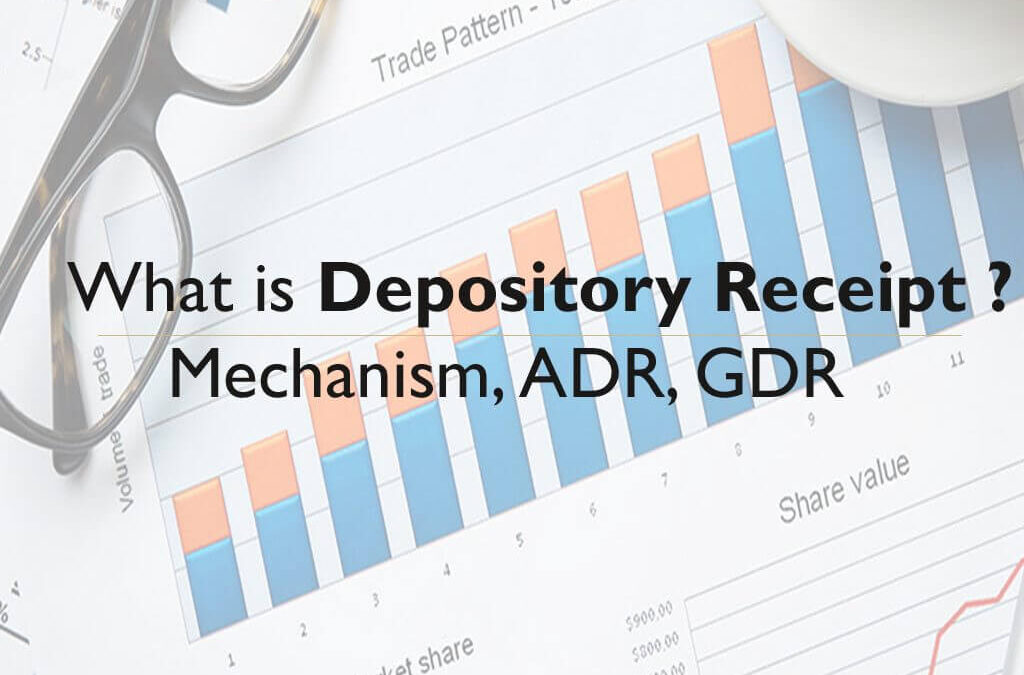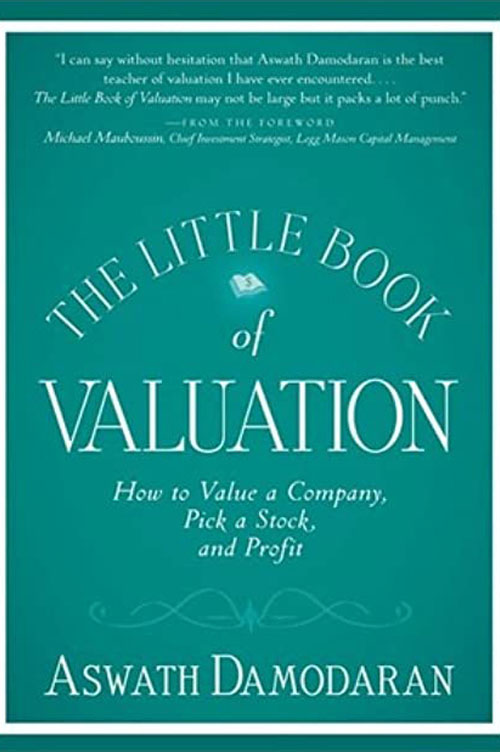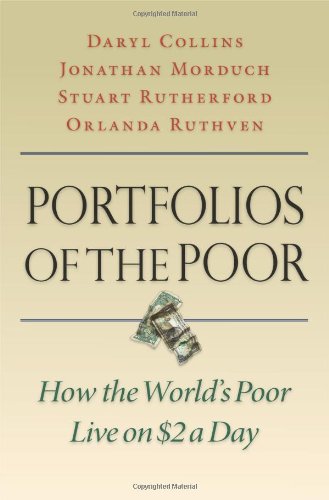Meaning
A depository receipt (DR) is a type of security through which a domestic company can represent its shares in foreign stock markets.
It is a physical certificate issued to investors which allows them to hold shares of domestic companies in foreign countries while trading in local stock exchange within the home country.
Previously, if investors want to buy shares in foreign company, they would need to exchange their money into foreign currency and open foreign broker exchange, only then they are allowed to purchase shares on foreign stock exchange. Depository receipts were introduced to eliminate this entire process and thus make it simpler and more convenient for investors to invest in international companies.
SEBI came out with a detailed guidelines for issuance of Depository Receipts in October 2019. As per the rules drawn by SEBI, DR can be issued by public offering, private placement, or in manner according to the Jurisdiction.
There many types of Depository Receipts, but two most commonly DR used by Indian Companies are ADR and GDR.
American Depository Receipts (ADR)
ADR are securities that are issued in America to a foreign company through a depository bank. ADR is only applicable for US stock market.
ADR is a mechanism of trading non-US stock on US stock exchanges. Indian companies who wish to raise funds by issuing shares on American Stock Market can proceed through ADR facility.
SEC (Security and Exchange Commission) laid down the rules and regulations for the issuance of ADR. Thus the foreign companies have to maintain the regulations as per the American Standards.
Types of ADR available for Investors
1) Sponsored ADRs
A sponsored ADR is an agreement between a non-American company and an American bank.
The company has to pay all the costs related to the issuing of depository receipts in the American markets. In return, the American bank handles all the transactions between the non-American company and the American investors.
These ADRs are like normal company shares, they also offer voting rights to the shareholders.
2) Unsponsored ADRs
An unsponsored ADR is created by American bank without the permission or involvement of a foreign company.
Since there is no involvement of foreign company in the creation of depository receipt, the securities are usually traded over-the-counter. This type of ADRs doesn’t offer voting rights to its shareholders.
Unsponsored ADRs are further categorized in three major types –
- Type 1 ADR:
This ADR only establishes a presence of non-US Company in the US stock market. They don’t permit to raise funds.
- Type 2 ADR:
This ADR is similar to type 1 ADR as both don’t permit to raise funds. Only difference is that, this type of ADR have a higher visibility and trading volume in the US stock market.
- Type 3 ADR:
This type of ADR is more precious from the companies’ point of view, as this ADR allows to raise funds and float IPOs on the American stock market.
Global Depository Receipts (GDR)
GDR is similar to ADR, only difference is that the company’s securities are listed in stock exchanges outside the America.
GDR helps domestic companies to raise finance from the international equity market except in the US Stock Exchange.
Like ADR, other countries’ banks also provide depository receipts to the outsiders in return for the shares listing. Companies holding GDRs can convert this depository into shares by submitting the receipt to the bank.
The GDR market is an institutional one and thus offers less liquidity compared to ADR.
Indian Companies can now list their GDR at the International Financial Service Centre in Gujarat. Companies who wish to issue GDR need to get approval from the Ministry of Finance and Foreign Investment Promotion Board (FIPB).
Companies that have issued GDRs in India are –
- Aditya Birla Capital, listed on the Luxembourg Stock Exchange
- UPL, listed on Singapore Stock Exchange
- GAIL Indian, listed on the London Stock Exchange.
Types of GDR available for investors
1) Rule 144A GDRs
This GDR operates through Rule 144A of the Securities Exchange Commission (SEC) of the USA. This rule allows non-US companies to list on American stock exchanges and raise capital in foreign currencies.
This type of GDR is cheaper for foreign companies compared to Type 3 ADR, to raise funds from American markets.
2) Regulation S GDRs
These type of GDR helps non-US companies to establish its trading presence and raise capital in the European markets only.
This GDR is trade only on the London or Luxembourg Stock Exchanges. These are popularly known as Reg S GDRs. Only non-US investors can trade in this type of GDR.
Foreign companies can issue both Rule 144A and Reg S GDRs, but have to go through different laws.
Difference between ADR and GDR
| Basic Comparison | ADR | GDR |
| Acronym | American Depository Receipt | Global Depository Receipt |
| Meaning | A negotiable instrument issued by an American bank, to represent foreign/non-American company stock on American Stock Exchange. | A negotiable instrument issued by the international depository bank, representing foreign company’s stock in global market. |
| Relevance | Foreign companies can trade in American stock market. | Foreign companies can trade in any country’s stock market except American Stock Market. |
| Issued in | United States Capital Market | European Capital Market |
| Listed on | American Stock Exchange E.g. – NYSE or NASDAQ. | Non-American Stock Exchange E.g. – London Stock Exchange or Luxembourg Stock Exchange. |
| Currency available for Trade | US Dollars | US Dollars and Euros |
| Negotiations | In USA only. | All over the world. |
| Disclosure Requirement | More onerous | Less onerous |
| Market | Retail investor market | Institutional market. |
Advantages and Disadvantages of ADR/GDR
Depository receipts are popular way of raising funds for companies by creating a presence in foreign markets. But what are the benefits and difficulties a company and investor has to go through if they opt for depository receipts.
Advantages
1) Depository receipts provide investors to trade in foreign markets. It is great way of diversifying a portfolio.
2) Currencies are issued in US dollars and Euros, both are powerful economic currencies to invest in.
3) Since Depository Receipts are treated as shares, investors get various shareholders benefits such as voting rights for equity holders.
4) Depository Receipts are a great way to gain positive international attention for businesses and increase the base of shareholders stake as well.
Disadvantages
1) Since all transactions are happening in foreign currencies, it will take effect on investments and capital as per the foreign exchange or forex market.
2) Depository Receipts are suitable for investors who are ready to take risk and invest in high amount as per the eligibility criteria.
Conclusion
If a company directly lists its securities in stock market, then it must go through various disclosure and listing fees. Depository Receipts is an indirect way to enter in foreign markets to raise additional capital for businesses. DR has become a part of management strategy for most of the companies to get listed outside the boundaries and create its presence in foreign markets to build brand equity.
Reference
- https://www.elearnmarkets.com/blog/all-about-adr-and-gdr/
- https://www.investopedia.com/terms/g/gdr.asp
- https://www.investopedia.com/terms/d/depositaryreceipt.asp
- https://muds.co.in/fccbs-adrs-gdrs/
- https://byjus.com/commerce/difference-between-adr-and-gdr/
- https://keydifferences.com/difference-between-adr-and-gdr.html
- http://kb.icai.org/pdfs/PDFFile5b28cd491996f8.36962095.pdf
- https://corporatefinanceinstitute.com/resources/knowledge/trading-investing/depositary-receipt/




